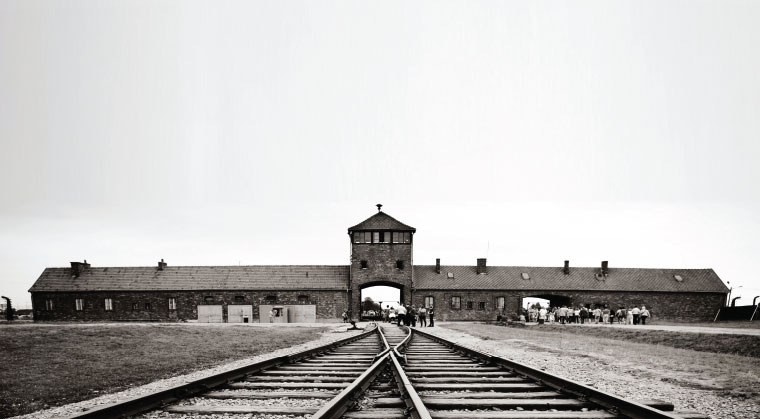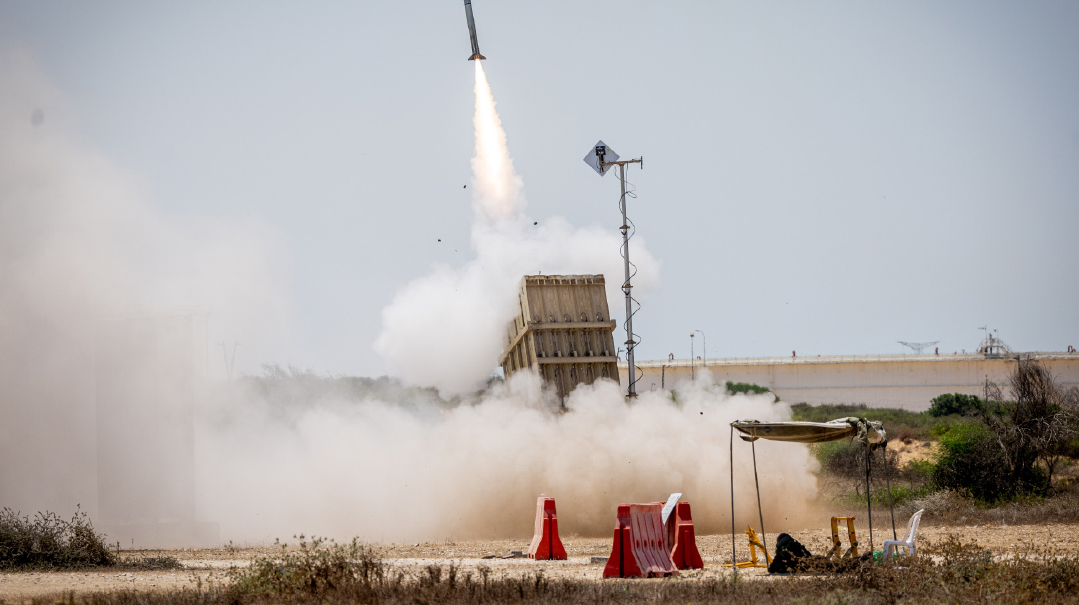Poland Detached from Its Past

Proposed Holocaust law punishes discussions of Polish guilt

O
ne Motzaei Shabbos in the early 1970s, my parents hosted a Melaveh Malkah in our home in Passaic. It was all adult company, so I made myself scarce. But then suddenly, my father knocked on my bedroom door and insisted I join their guests. Some of them were concentration camp survivors sharing their experiences. My father wanted me to hear them firsthand.
I only remember one story from that night. One of my father’s friends, an Auschwitz survivor, returned to his former neighborhood in Poland after the war. He discovered someone else living in his old home, so he knocked on a neighbor’s door to investigate. The neighbor’s reaction was unforgettable.
“You! You’re still alive?!”
It was a line he said was unmistakably delivered without joy, or relief. Just incredulity that a Jew they thought they’d seen the last of miraculously reappeared.
My memory was jogged following last Friday’s vote in the lower house of Poland’s parliament making it a criminal offense to blame Poles for Holocaust atrocities committed on their soil. Approved on International Holocaust Remembrance Day, the law bore resemblance to a certain level of detachment that our family friend experienced in 1945.
“The main point of the law is to prevent discussion about the participation of the Polish people, whatever that number may have been, in the persecution of the Jews,” said Dr. David Silberklang, a senior historian at the International Institute for Holocaust Research and editor-in-chief of Yad Vashem Studies, a scholarly journal. The proposed bill would punish such offenses with up to three years in prison or a fine.
Poles have long contended they were victimized by Nazi Germany as much as Europe’s Jews were. Poland was the first country Germany conquered in its European blitzkrieg that began in 1939, and the Nazis killed some 1.9 million non-Jewish Polish civilians during the war. Yad Vashem says some 2.7 to 3 million Jews were murdered in Nazi concentration camps built on Polish soil.
One goal of the law is to criminalize use of the term “Polish death camps,” since Poland has long claimed it did not construct or operate any concentration camps. “Yad Vashem has agreed this is an inappropriate term and we should educate people not to say that,” Dr. Silberklang says.
Poland’s Chief Rabbi Michael Schudrich contends the more problematic section of the law is the vague wording that makes it illegal to lie about Polish complicity in the Holocaust.
“Who’s going to decide what’s a lie?” asks Rabbi Schudrich. “If you want to get into the question about whether someone’s lying, you’ve got to clarify the baseline.”
Yad Vashem has uncovered at least 7,000 righteous Polish gentiles who risked their lives during the war to save Jews. However, in certain regions and rural areas, some Polish citizens, including members of the underground resistance, harmed and even killed Jews on their own initiative.
In response to the proposed bill, the Conference of European Rabbis has asked Poland to assemble a commission of experts to finally set the historical record straight. The conference wants the commission to determine both the extent of Polish citizenry’s collaboration with the Nazis and to what extent they helped save Jews during the Holocaust.
Rabbi Schudrich says he supports this idea. Will Poland go for it?
“We don’t have the answer to that question yet,” Rabbi Schudrich says. “It’s an idea from yesterday. Let’s see what happens.”
Report Anti-Semitism Fearlessly
When confronted with online anti-Semitic hate messaging, not enough Jews adhere to the advice “if you see something say something.”
A new survey of some 1,361 Jews by the World Zionist Organization (WZO) shows that 81% of European Jews and 86% percent of American Jews have viewed anti-Jewish content on social media, says Eitan Behar, director of the WZO’s Center for Diaspora Communications and Countering Antisemitism, who presented survey results to the foreign press last week in Jerusalem.
Behar, a social media expert, was working as a Likud Party blogger ten years ago when he persuaded Prime Minister Netanyahu to use new media to spread his message.
Netanyahu is acclaimed as an effective communicator, partly because he is well-versed in Jewish history, and well-armed with facts to support his arguments.
Behar says Jews worldwide need to take a page from Bibi’s playbook by brushing up on their Jewish education and conveying Jewish pride when verbally jousting on line with our enemies. While this won’t reduce the numbers of hard-core anti-Semites, it can influence the undecideds.
Behar worries about the growing number of both right- and left-wing anti-Israel activists who have joined forces with radical Islamists, using the cloak of human rights organizations to disseminate anti-Jewish messaging.
The people running social media platforms, and law enforcement authorities, won’t do anything about it unless viewers report it. “If you do not report it, then it’s as if it never happened, and if it didn’t happen, then it’s not on anyone’s agenda,” said Behar.
Asked for guidelines on what to report and to whom, Behar said anti-Semitic content should be reported directly to the platform on which it was published. If online incitement entails a call to action, such as a public protest at a Jewish institution, the viewer should immediately inform police and local Jewish community leaders.
Fact Checking Obama Math
Take a Sunday drive through the heart of Judea and Samaria (Yesha) and look around. Even with laser vision, it’s tough to pinpoint which Jewish settlements are impediments to peace.
A more apt description is living the country life.
Jewish towns and Arab villages coexist at a distance, situated mainly along hilltops on opposite sides of the road. There seems to be plenty of vacant land for both communities to grow. It’s also hard to tag the settlements as isolated.
Aside from a few small farming hamlets in the center of the Jordan Valley, where perhaps a total of 2,000 Jews live, the rest of Yesha’s 435,000 Jewish residents (in 157 communities) mainly live within an hour’s drive of either Tel Aviv or Jerusalem.
Yet old myths — or fake news — die hard.
Days after Mahmoud Abbas declared that the peace process was doomed, former president Obama told congregants at a Reform temple in Manhattan that isolated Israeli settlements “deep into the West Bank” have made peace less achievable. “The pace of settlements during my presidency and during Netanyahu’s time as prime minister skyrocketed and accelerated,” Obama said.
Politicians often play loose with the facts, but the numbers don’t lie.
So I checked with Israel’s Central Bureau of Statistics (CBS), the Israeli bureau that monitors housing starts. The only relevant figures were from Obama’s second term, 2012 to 2016; during much of his first term, there was a housing freeze in Yesha.
From October 2013 through September 2017, construction began on 196,563 new homes in Israel, but only 8,119, or 4% were in Yesha, which is home to 5% of Israel’s Jews.
There was some acceleration in Yesha from 2014 to 2015 — from 1,516 to 1,913. In 2016, starts rose to 2,689, but then dropped to 2,000 in 2017.
In other words, the pace of settlement construction has not “skyrocketed” at all. The president could have better described new housing starts in Yesha during his second term as unfolding at a snail’s pace.
(Originally featured in Mishpacha, Issue 696)
Oops! We could not locate your form.






